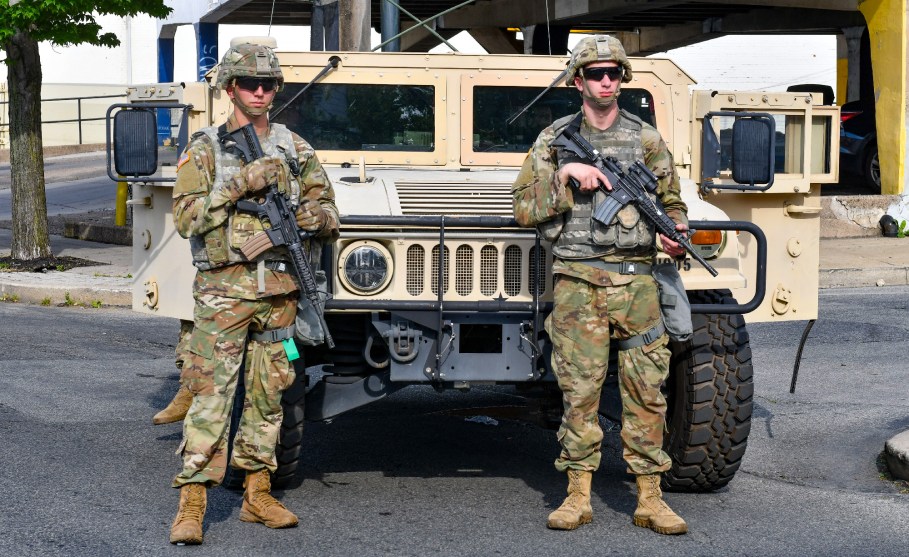
Less of this, please.Ricky Fitchett/ZUMA
Laurie Robinson was co-chair of the 21st Century Policing Task Force, set up by President Obama after the events in Ferguson in 2014. Politico’s Zack Stanton asked her what recommendations they made for dealing with mass protests:
What we recommended for dealing with mass demonstrations was protecting the First Amendment rights of demonstrators. Certainly, when dealing with violent situations, you need to bring law enforcement forward to deal appropriately. But where you can, pull back riot police and minimize confrontation by putting officers wearing “soft look” uniforms in front. Minimize the use of military formations and militarized approaches, so that the crowd perceives that you are working with the community and are not an occupying force. That’s what our report was all about: The notion of law enforcement being guardians of the community and not an occupying force. Not warriors; working with the community to co-produce public safety.
Put “riot” police in back. Put less-threatening police officers in front. Deescalate whenever possible. Avoid militarized approaches.
Later in the interview Robinson says she thinks many police departments have made tremendous progress in the five years since the report was issued. Maybe so. But in every city that I see on TV, the cops are in full body armor and helmets; they’re put on the front lines as if daring the protesters to make a move; tear gas and rubber bullets appear to be on a hair trigger; and the streets are full of armored vehicles. This is the same approach used in Ferguson six years ago, and judging by the television coverage it’s still the unanimous choice of big-city police chiefs for dealing with the George Floyd protests.
Or is it? One other possibility is that there are plenty of cities that have adopted a softer approach, which has paid off in less violence. This means they don’t make the news and I never see them, so I assume that the hard-ass approach is universal.
I’d love to see some reporting about that: Are there cities that have dealt effectively with large protests? Are they using different approaches? It’s still early days, but are there any conclusions to be drawn from how different cities have responded to the protests?

















